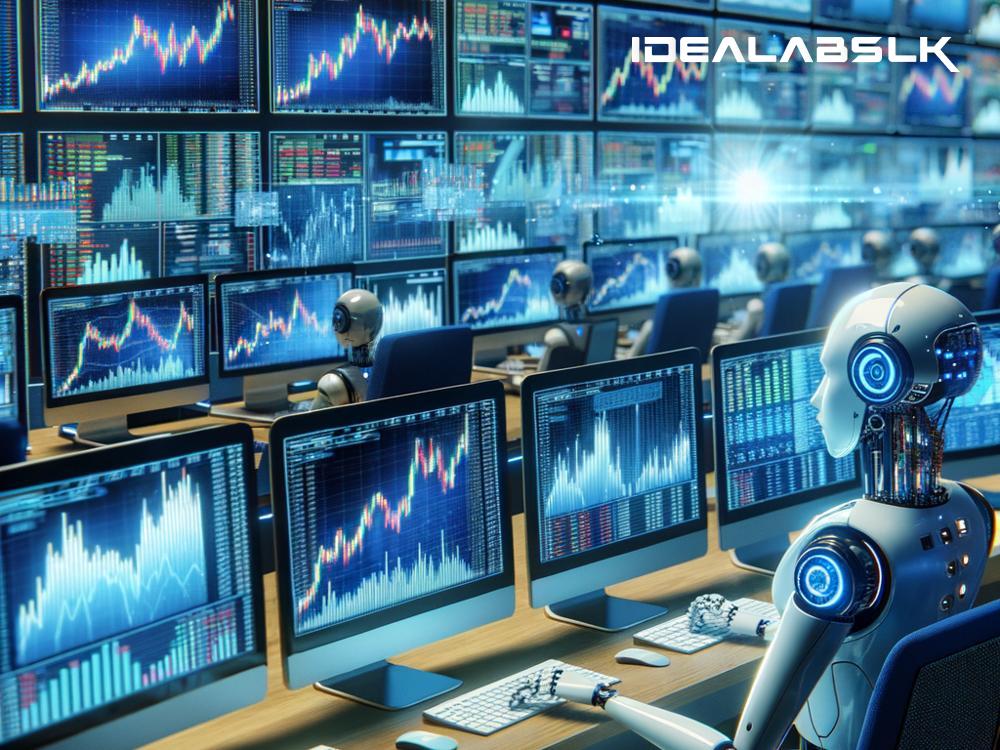AI and Machine Learning in Trading: Revolutionizing Financial Markets
In the fast-paced world of financial markets, traders and analysts constantly search for an edge to outperform the competition. Enter Artificial Intelligence (AI) and Machine Learning (ML), technologies that are revolutionizing the way we approach trading. These technologies are not just changing the game; they're setting up a whole new playing field. But what exactly are AI and ML, and how are they making such a significant impact in trading? Let's break it down in simple English.
What are AI and Machine Learning?
Artificial Intelligence is a broad field of computer science focused on creating smart machines capable of performing tasks that typically require human intelligence. Imagine a robot that can think, learn, and make decisions; that's AI in a nutshell.
Machine Learning, a subset of AI, is the process of teaching a computer system to make accurate predictions or decisions based on data. Instead of explicitly programming the computer every step of the way, ML algorithms use historical data to learn and improve over time. Picture a student learning from a textbook, except the student is a computer, and the textbook is data.
AI and ML in Trading
In the context of trading, AI and ML algorithms are like super-smart robots that analyze vast amounts of financial data in milliseconds, something humans could never do. They can spot trends, predict market movements, and even execute trades at lightning speed. This ability to process and analyze big data quickly and accurately is a game-changer in financial markets.
How are AI and ML Revolutionizing Trading?
1. Automated Trading Systems
One of the most significant impacts of AI and ML is the rise of automated trading systems. These systems use algorithms to make trading decisions, place orders, and even manage trades without human intervention. This automation reduces the chance of human error and allows trading to happen quickly and efficiently, often faster than a human could react.
2. Predictive Analytics
ML algorithms can analyze historical data and identify patterns or trends that might indicate future market movements. This predictive capability can give traders insights into when might be a good time to buy or sell certain assets. It’s like having a crystal ball, but instead of magic, it’s data science.
3. Risk Management
AI and ML are also revolutionizing how traders manage risk. By analyzing data and market conditions in real-time, these technologies can help identify potential risks before they become problems. This allows traders and investment firms to make more informed decisions about where to allocate resources, minimizing losses and maximizing returns.
4. Fraud Detection
Another critical application of AI and ML in trading is fraud detection. By recognizing patterns indicative of fraudulent activity, these technologies can help protect investors and maintain market integrity. It’s akin to a highly trained detective, combing through data to catch bad actors.
Challenges and Considerations
While the benefits of AI and ML in trading are clear, there are also challenges to consider. These technologies require significant data and computing power, which can be expensive. There is also the risk of over-reliance on algorithms, as they are not foolproof and can sometimes make mistakes or miss nuances that a human trader might catch.
Furthermore, as AI and ML become more prevalent in trading, there is a growing debate about market fairness and the ethical use of these technologies. Ensuring that trading remains a level playing field for all participants is an ongoing challenge.
The Future of Trading
AI and ML are here to stay in the world of trading. As technology advances, we can expect these tools to become even more sophisticated, leading to further innovations in the financial markets. The traders and firms that embrace these technologies will likely have a significant advantage over those who don't, marking a new era in trading where data and algorithms are as critical as traditional market knowledge.
In essence, AI and ML are not just transforming trading; they are ushering in a new era of financial markets where data, speed, and efficiency reign supreme. Whether you're a seasoned trader or just starting, understanding the impact of these technologies is crucial for success in the modern trading landscape.

